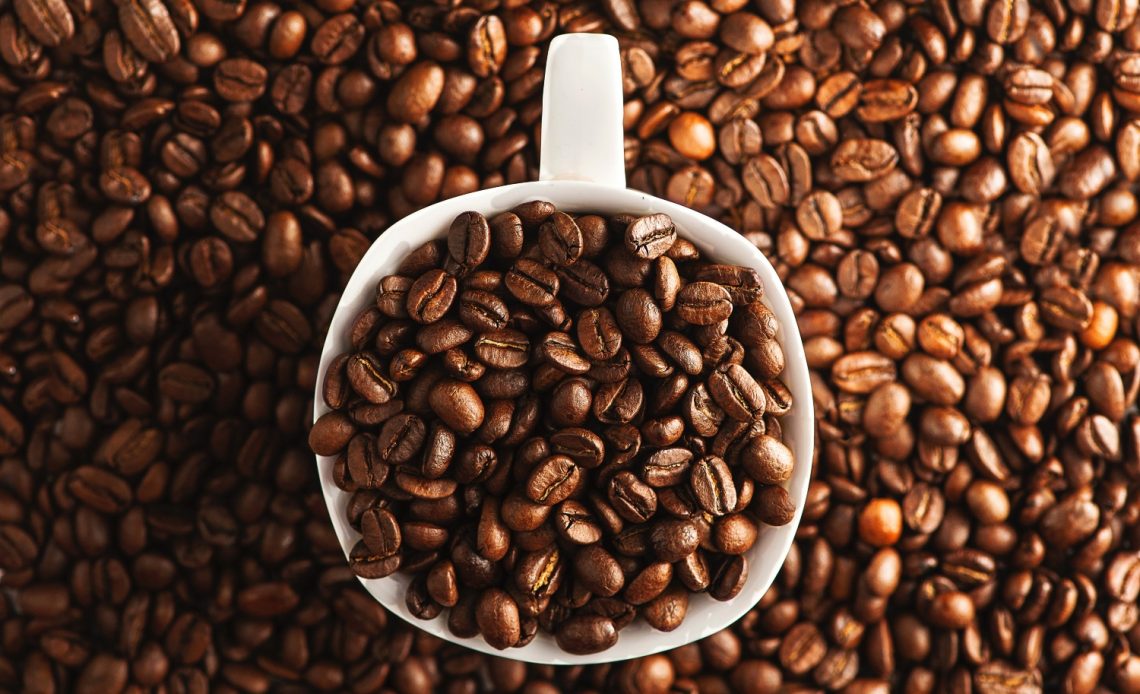

We’re here to help! Wild Yards is a completely free website that is 100% dedicated to helping you create a wildlife-friendly, sustainable yard. Read more
WildYards is reader-supported. When you buy a product through a link on our site, we may earn a comission. Every product is independently selected by our (obsessive) editors and our reviews are unbiased and objective. Read more about our mission or our privacy policy.
Many gardening gurus recommend saving your used coffee grounds to feed your plants. While it’s true that some plants can benefit from being fertilized with coffee grounds, others don’t have much to gain from them.
Coffee grounds are somewhat acidic in nature and are naturally high in levels of phosphorus, magnesium, and potassium.
Before you go spreading your old coffee grounds in your garden, it’s important to first know which plants do not like coffee grounds so you can avoid harming the veggies in your garden and the flowers in your landscaping.
Geraniums, spirea, lavender, and gladiolus dislike coffee grounds. They’re also not a great choice of fertilizer for asparagus, carrots, potatoes, radishes, broccoli, and other members of the Brassica family.
Which plants do not like to be fed coffee grounds?
There are plenty of plants that like coffee grounds, but before we get into them, first things first: which plants dislike coffee grounds? Let’s take a look.
Ornamental and flowering plants which do not like coffee grounds
- Asters
- Black-eyed Susan
- Cactus
- Century plant
- Chinese mustard
- Dianthus
- Ferns
- Geraniums
- Gladiolus
- Iris
- Italian ryegrass
- Lavender
- Madagascar periwinkle
- Orchid
- Pothos
- Rosemary
- Russian sage
- Spirea
- Succulents
- Yucca
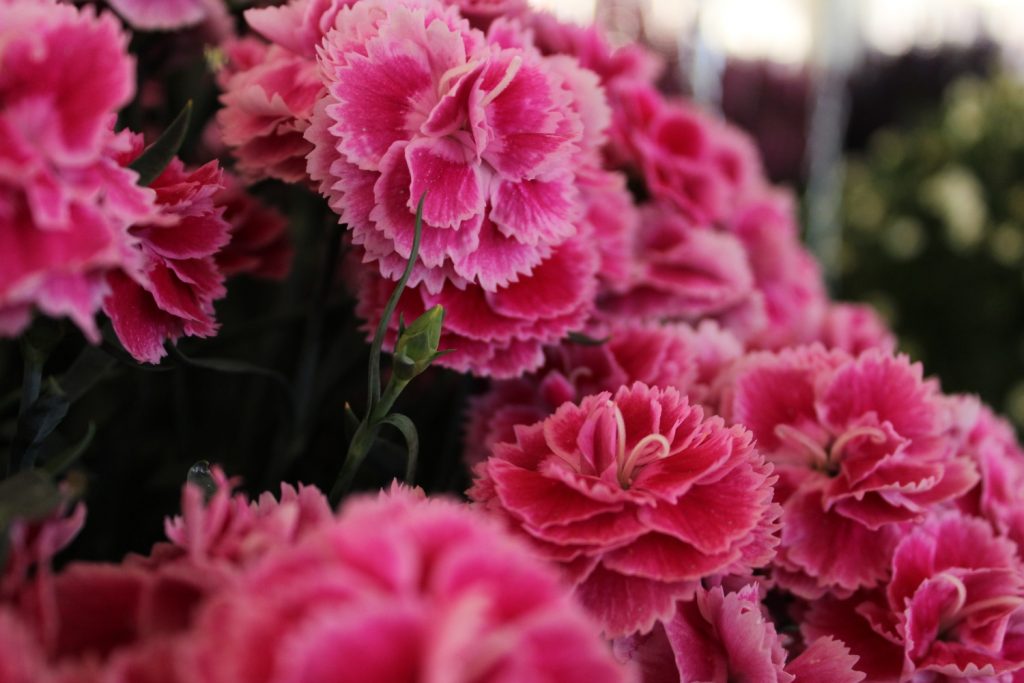
Vegetable plants that do not like coffee grounds
- Alfalfa
- Asparagus
- Beans
- Beets
- Broccoli
- Cabbage
- Carrots
- Cauliflower
- Celery
- Chives
- Garlic
- Onions
- Potatoes
- Radishes
- Shallots
- Spinach
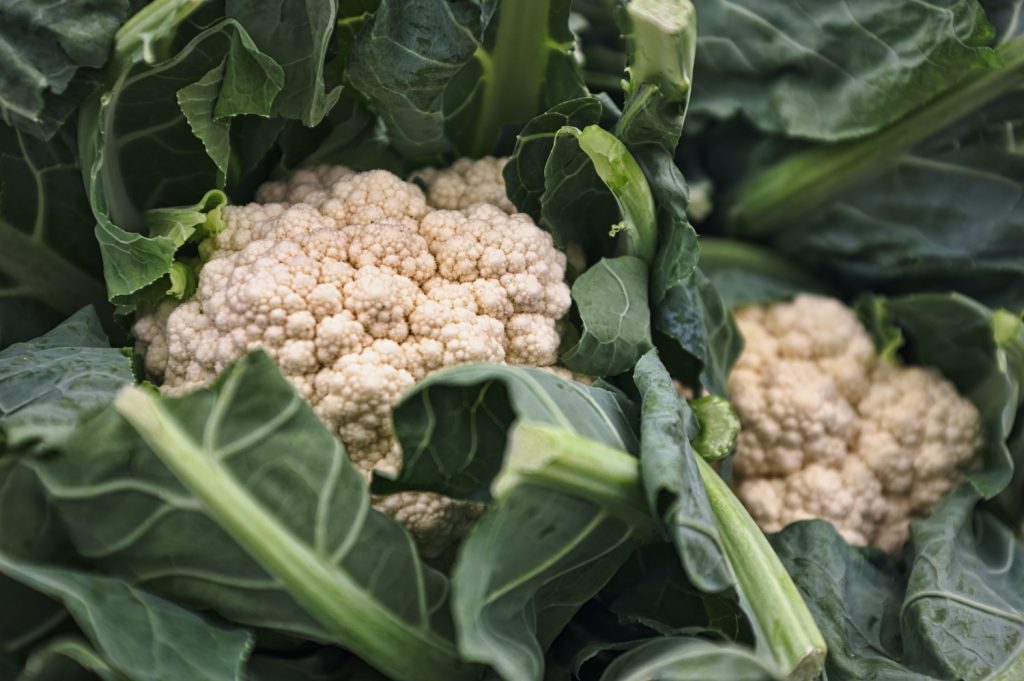
Fruit plants that do not like coffee grounds
- Apricot trees
- Fig trees
- Grapes
- Lemon trees
- Pomegranate trees
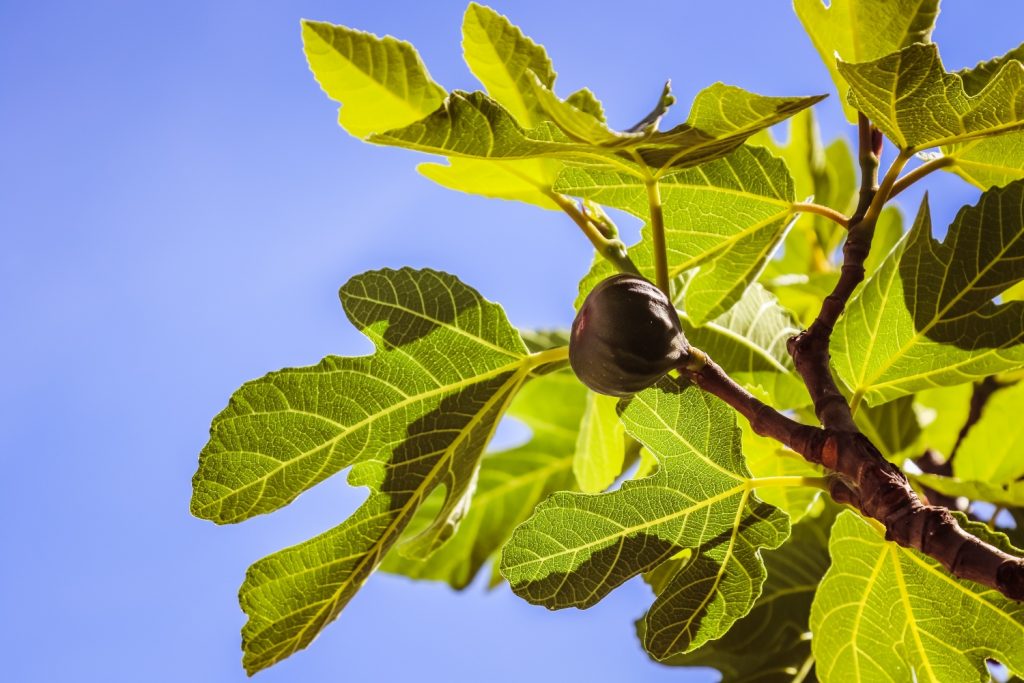
Which plants do like coffee grounds?
Although many plants dislike coffee grounds, just as many enjoy them. Here are a few plants that will enjoy being fed used coffee grounds
Ornamental and flowering plants which like coffee grounds
- African violets
- Azaleas
- Camellia
- Christmas cactus
- Cyclamen
- Daffodils
- Elephant ears
- Gardenias
- Holly
- Hydrangeas
- Lilies
- Marigolds
- Philodendrons
- Rhododendrons
- Roses
- Snake plants
- Sweet potato vine
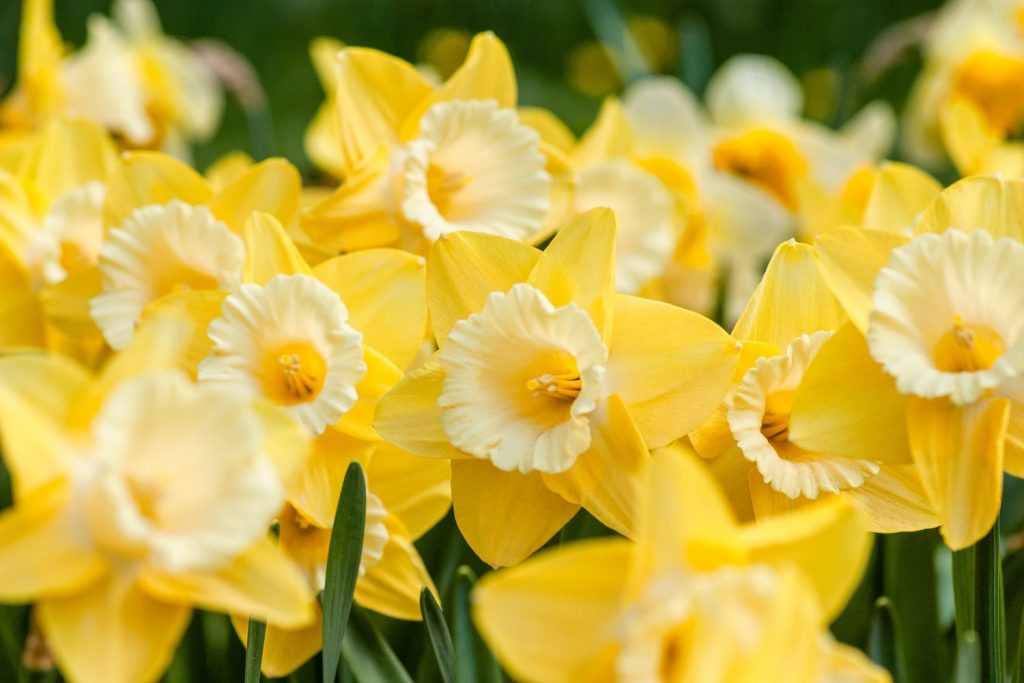
Vegetable plants which like coffee grounds
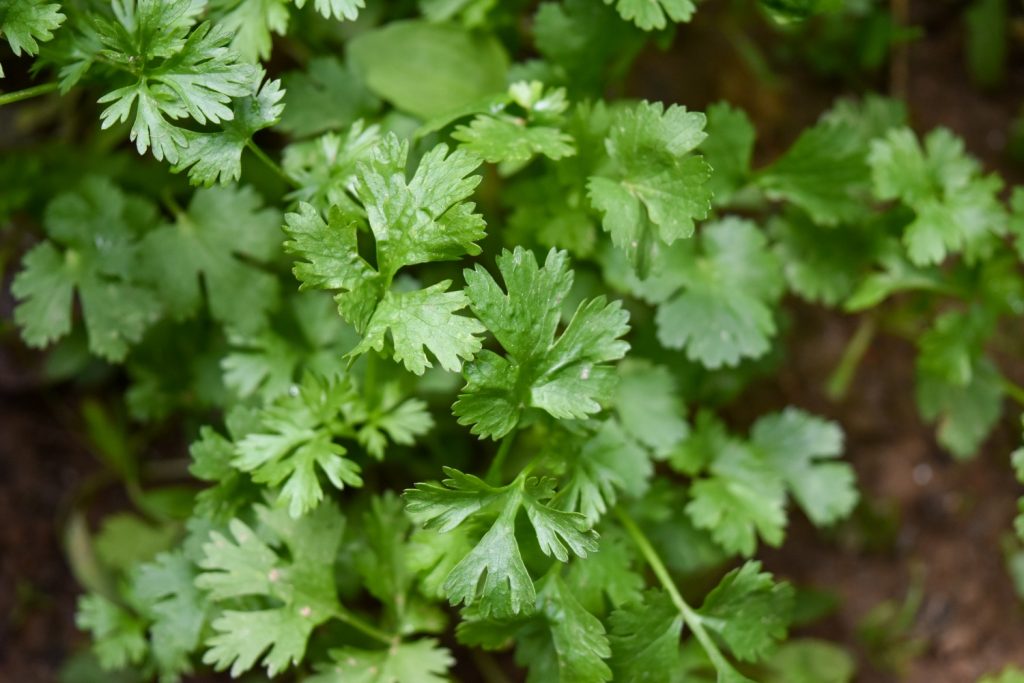
Fruit plants which like coffee grounds
- Blueberries
- Cranberries
- Gooseberries
- Strawberries
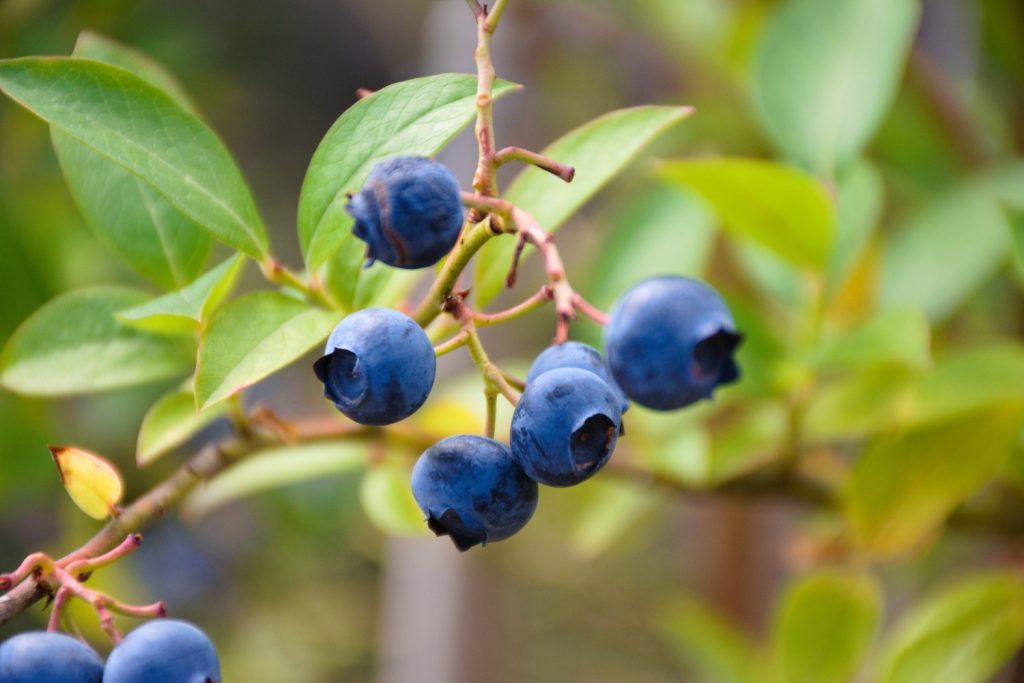
Why do some plants dislike coffee grounds?
There are several reasons why some plants dislike coffee grounds. First, used coffee grounds contain tannic acid and can make soils more acidic. At least, temporarily.
As it turns out, coffee grounds don’t actually alter the soil’s pH that much. But overapplication of coffee grounds can significantly lower the soil’s pH over time. Adding coffee grounds to soil that is already acidic can worsen the situation, too.
Another reason why many plants dislike coffee grounds is that they help the soil retain moisture. Coffee grounds tend to clump together, trapping water and releasing it slowly.
This can prove to be detrimental to a variety of plants, including Mediterranean natives like rosemary and lavender, which don’t grow well in moist soils. These drought-tolerant herbs prefer dry soil that drains quickly, as they are both prone to root rot.
Succulents and cacti also grow best in soils that can dry and suffer when fertilized with coffee grounds.
Coffee grounds also contain high levels of nitrogen, magnesium, and phosphorus. Excessive levels of these nutrients lead to nutritional deficiencies.
When soil levels of nitrogen, magnesium, and phosphorus skyrocket, levels of potassium, manganese, zinc, and copper will be much lower by comparison.
This affects the way plants absorb nutrients, leading to stunted growth, poor flower production, yellowing foliage, and other symptoms of nutritional deficiencies.
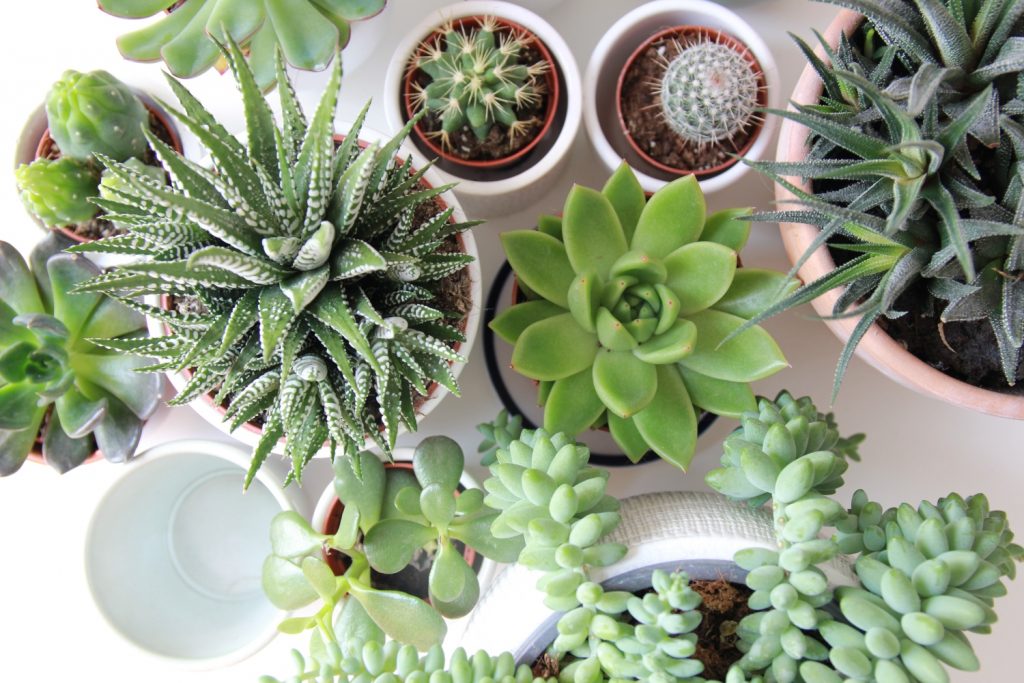
What are some signs that you’ve given your plants too many coffee grounds?
When you feed your plants excessive amounts of coffee grounds, the soil becomes more and more acidic over time. And if your soil has become too acidic for your plant’s liking, they’ll let you know, but it’s up to you to pay attention to the warning signs.
The first indication that your plant’s soil is too acidic is stunted growth. Many plants have trouble accessing the nutrients they need when the pH is too low. Without nutrients, they can’t continue growing well.
Stunted growth is the first sign of overly acidic soil, but it’s quickly followed by poor flower production. Your plants may not produce as many buds, or they may begin dropping buds before they can be pollinated and produce fruits. You’ll also likely notice yellowing foliage at the same time, as plants continue to struggle with nutritional deficiencies.
Of course, the best way to determine if your soil is too acidic for your plants is to use an at-home soil test kit.
Your soil’s pH level can change over time depending on which plants you grow, how much rainfall you receive, which fertilizers you use, and many other factors. We recommend testing your soil once or twice a year to determine which fertilizers your plants will benefit from.
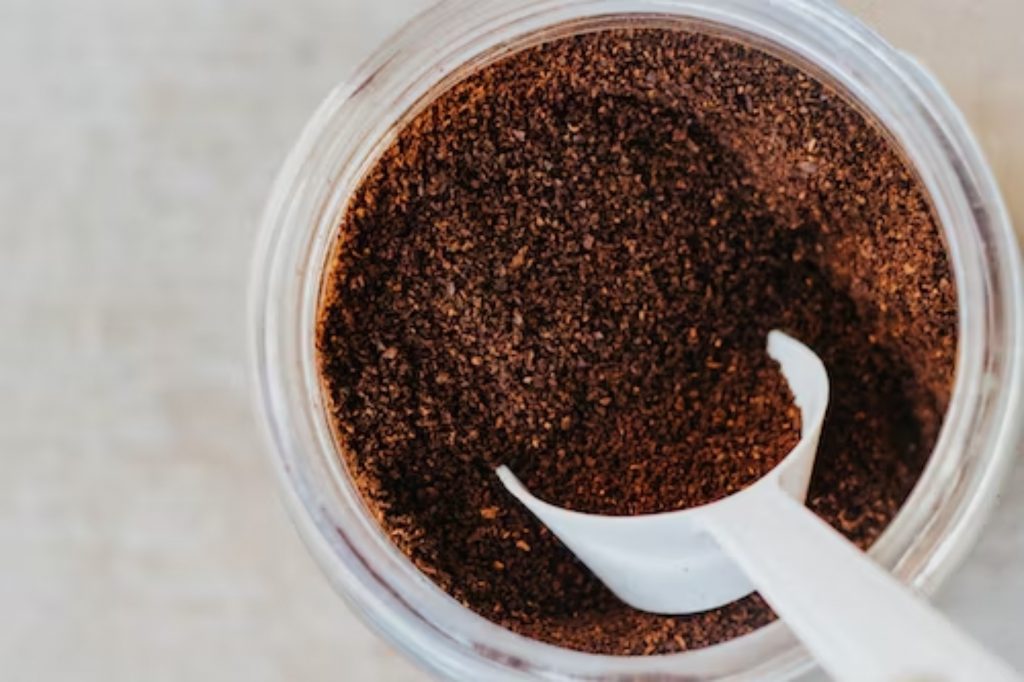
How can you make acidic soil more alkaline?
Most plants grow best when the soil pH is between 6.0 and 7.0, which is slightly acidic to neutral. However, you’ll need to research to determine which pH your plants like best before amending the soil.
If you’ve already tested your soil and found that it is far too acidic for your plants, then you need to add materials that will raise the pH and make it more alkaline by comparison.
Use organic materials like eggshells, crushed limestone, and wood ash to raise your soil’s pH. Seaweed fertilizers including kelp meal can also be used to bring the pH up to a more neutral level.
When adding these materials to your soil, it’s important to use small amounts at a time to avoid raising the pH too much and creating another problem for yourself. Be sure to water your plants well after amending the soil to encourage the materials to break down.
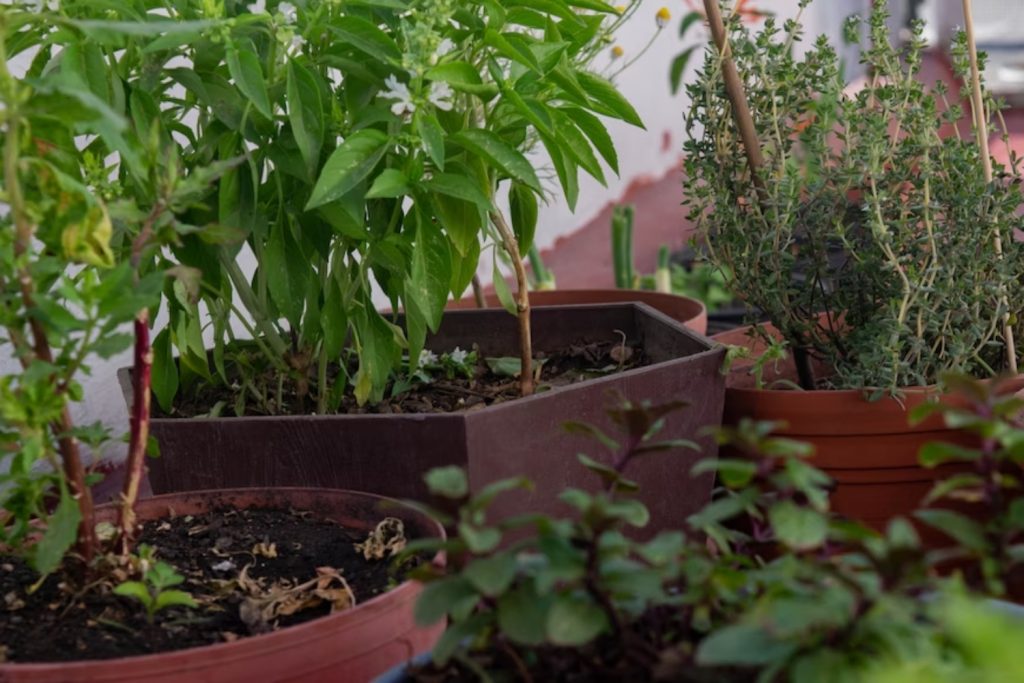
How can you lower soil pH without using coffee grounds?
Maybe you’re growing plants that do not like coffee grounds, and maybe you tested your soil and discovered that it is not too acidic, but rather, too alkaline. If this is the case, then which organic materials can you use as a substitute for coffee grounds to make the soil more acidic?
In some cases, when the soil needs to be made more acidic quickly, you can apply a dilution of white vinegar to neutralize the pH.
A good rule of thumb is to add 1 cup of white vinegar to 1 gallon of water. Always err on the side of using less vinegar and more water. This solution is ideal for giving acid-loving plants, like azaleas and gardenias, a quick boost if you notice they aren’t performing well.
A vinegar solution can also be used to turn your pink hydrangeas blue.
For flower beds and vegetable gardens, pine needles and sphagnum moss are better choices. These materials can be mixed into the soil, adding structure to it, and breaking down slowly over time to keep the pH at a steady level.
Remember to test your soil annually to determine whether or not you need to add more of these organic fertilizers.
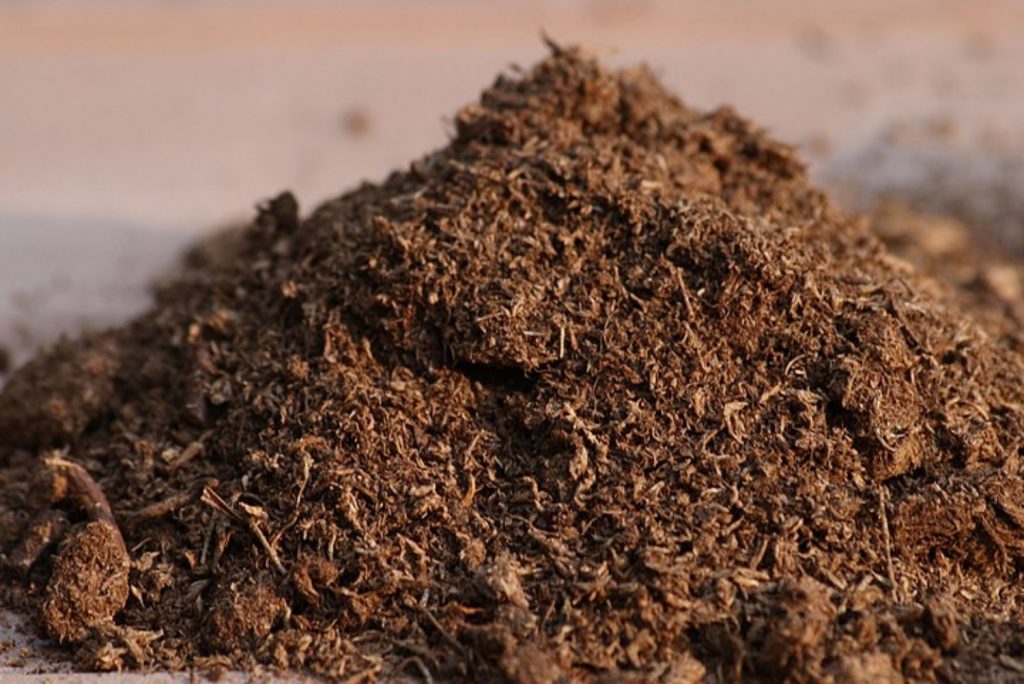
How can you use your leftover coffee grounds in the garden?
For plants that do like being fertilized with coffee grounds, the grounds can be broadcast over them, applied in a thin layer over the top of the soil to act as a mulch, or worked into the uppermost layer of the soil with the help of a weed fork.
You can even spread the coffee grounds around the perimeter of your garden to create a protective barrier against snails and slugs, which are repelled by the strong-smelling, acidic coffee grains.
You can also brew the used coffee grounds to make a fertilizer tea for your plants.
Simply add two cups of used coffee grounds to a 5-gallon bucket, and fill it with water. Allow the tea to steep for 24 to 48 hours, then strain the grounds out and use the resulting “tea” to water your plants. This is a great way to give your plants an extra dose of nitrogen.
Although many plants do not like coffee grounds, the grounds can still be added to your compost heap, just not in high concentrations.
Because the coffee grounds are mixed in with a variety of other organic materials (cardboard, table scraps, lawn clippings, shredded paper, etc.), all of these materials break down at the same rate, resulting in a fertilizer that has a more neutral pH.
Once the compost has aged, it can be added to the soil safely and generally helps make the soil more neutral.
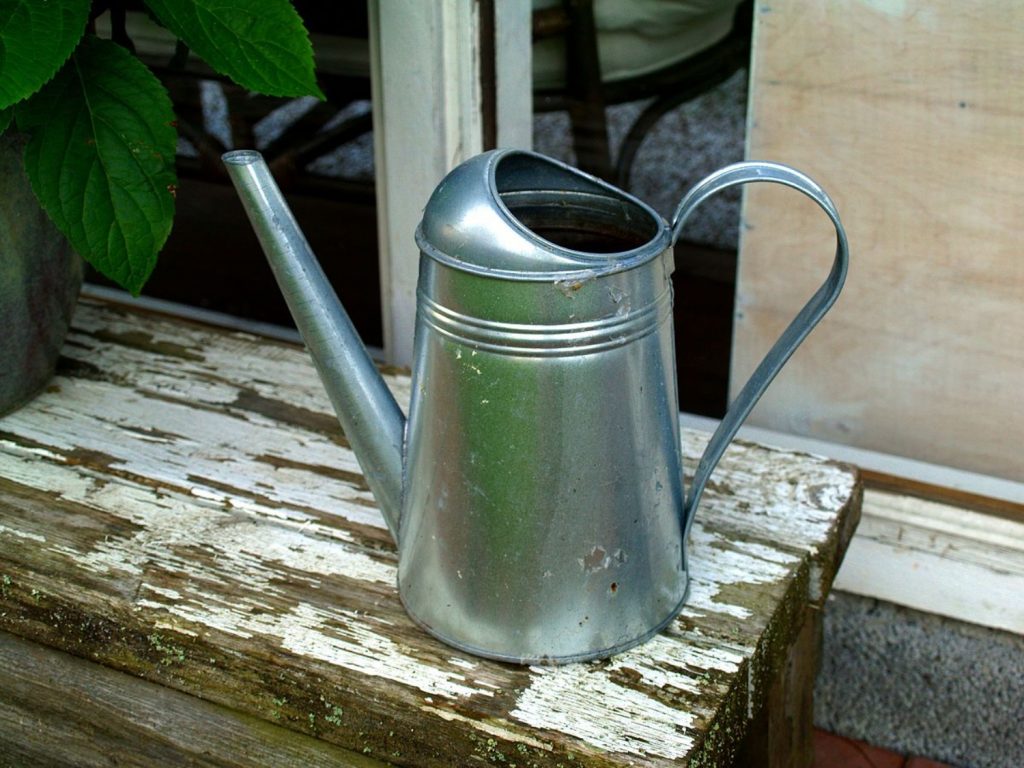
Do plants prefer caffeinated or decaffeinated coffee?
High concentrations of caffeine can kill your plants. So if you plan on using coffee grounds to make a natural fertilizer for your garden, be sure to use decaffeinated grounds, and only use small amounts at a time.
While caffeinated coffee may be bad news for the plants in your landscaping, it can be used as an all-natural weed killer.
Sprinkling coffee grounds in your flower beds will help kill young weeds and prevent new ones from sprouting — just be sure to keep your pets away from the beds after applying the grounds, since caffeine can be toxic to cats and dogs, too.
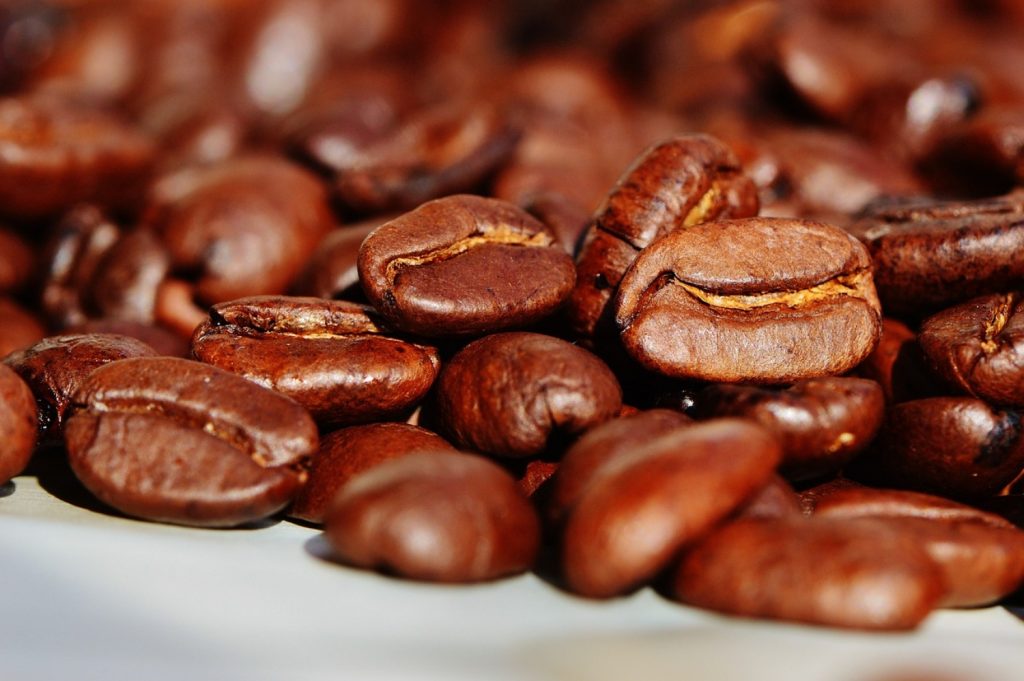
What are the best alternative fertilizers for plants that do not like coffee grounds?
Coffee grounds are a highly nutritious natural fertilizer. But if your plants dislike their acidity, you’ll need to find an alternative source of vitamins and minerals that will suit their needs. Fortunately, there are plenty of them! Here are 4 all-natural alternatives to coffee grounds to use in your garden.
Aged manure
Fresh cow, horse, and chicken manure are highly acidic and rich in nitrogen, which means it can be just as detrimental to plants that do not like coffee grounds as the coffee grounds themselves.
But aged manure has had a chance to break down, releasing excessive levels of moisture and nitrogen. That makes it an excellent substitute for coffee grounds that will provide your heavy feeders with a broad range of nutrients without affecting the soil pH.
Worm castings
We all know worms are good for plants, so if your flowers, fruits, and veggies are in need of an all-natural fertilizer, why not give them a healthy dose of worm castings?
When mixed with the soil, worm castings improve drainage and aeration, creating a loose, nutrient-dense substrate that’s easy for your plants to root through.
Worm castings tend to make the soil more neutral, but typically do not have a significant effect on soil pH.
Blood meal
If you’re looking for a substitute for coffee grounds to feed your plants that is still high in nitrogen, blood meal is a good choice.
Blood meal is made from dried animal blood. When used in small amounts, blood meal will give your plants a healthy dose of nutrients, including trace minerals like iron, without altering the soil pH.
Fish emulsion
Made from fish waste, fish emulsion is a natural fertilizer that smells about as bad as you would imagine.
But, for all its flaws, this stuff is pretty darn effective!
Not only does it not alter the soil pH dramatically, but it’s also highly nutritious. If coffee grounds aren’t an option for fertilizing your plants, choose a fish emulsion instead, which will provide your plants with essential minerals like nitrogen, phosphorus, potassium, calcium, magnesium, and sulfur.
Tips for maintaining the ideal soil pH without coffee grounds
Coffee grounds can be beneficial for a garden, as long as they’re used correctly. But if you’d rather steer clear of coffee grounds, or if you simply don’t drink coffee, here are a few additional tips that will help you maintain the ideal soil pH without coffee grounds.
Start by improving drainage and avoid overwatering. Excess water can lead to temporary distortions in soil pH.
Adding organic fertilizers, like compost, annually, will also help the soil maintain a steady pH. Remember to test your soil yearly to keep tabs on the pH level and add amendments as needed.
As a gardener, coffee grounds can be a valuable tool in your arsenal. You never know which organic materials can be used to give your plants a perk-me-up!
But understanding which plants do not like coffee grounds will enable you to use them effectively so you can grow the healthiest garden possible.
